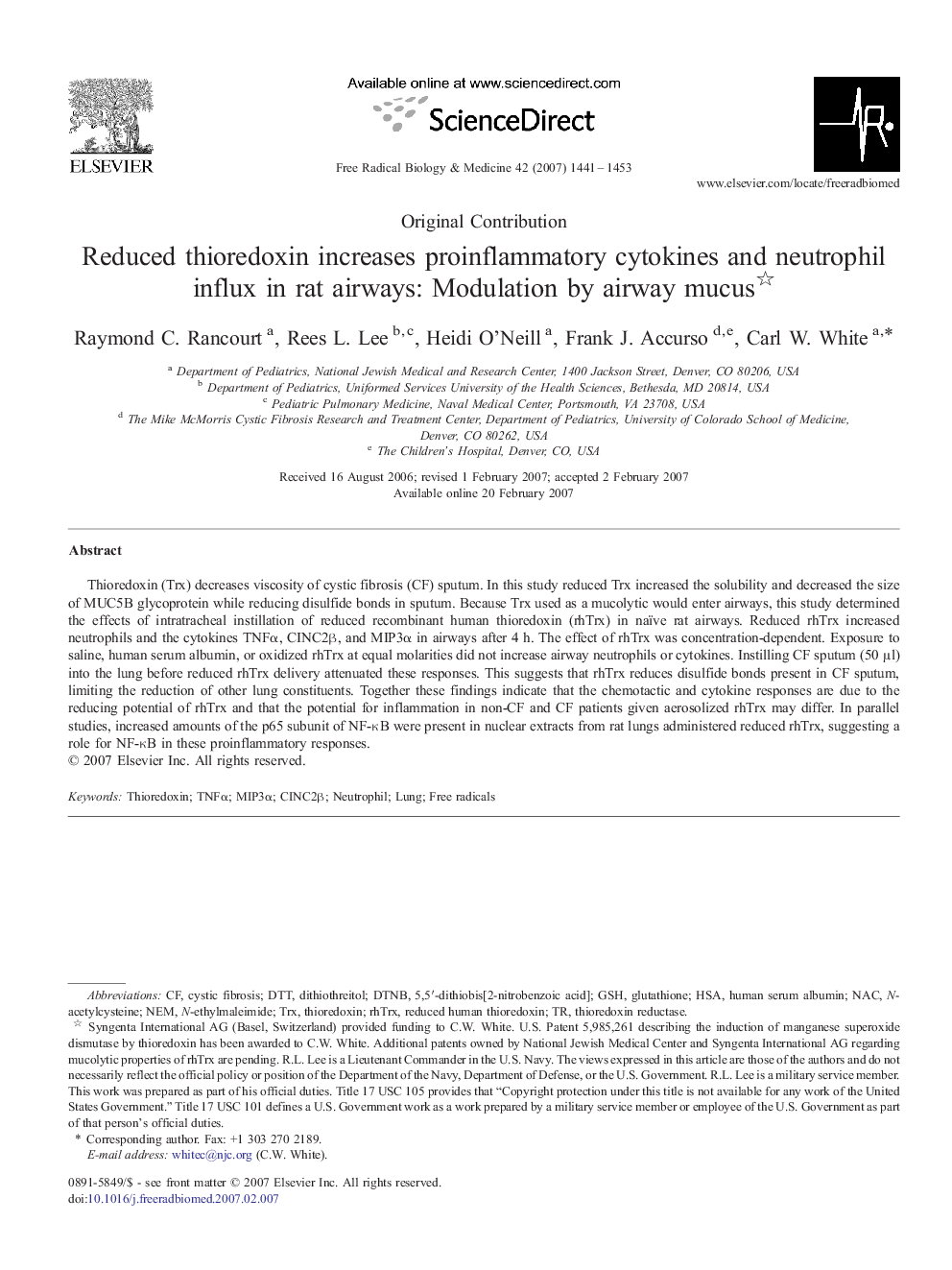| Article ID | Journal | Published Year | Pages | File Type |
|---|---|---|---|---|
| 1911568 | Free Radical Biology and Medicine | 2007 | 13 Pages |
Abstract
Thioredoxin (Trx) decreases viscosity of cystic fibrosis (CF) sputum. In this study reduced Trx increased the solubility and decreased the size of MUC5B glycoprotein while reducing disulfide bonds in sputum. Because Trx used as a mucolytic would enter airways, this study determined the effects of intratracheal instillation of reduced recombinant human thioredoxin (rhTrx) in naïve rat airways. Reduced rhTrx increased neutrophils and the cytokines TNFα, CINC2β, and MIP3α in airways after 4 h. The effect of rhTrx was concentration-dependent. Exposure to saline, human serum albumin, or oxidized rhTrx at equal molarities did not increase airway neutrophils or cytokines. Instilling CF sputum (50 μl) into the lung before reduced rhTrx delivery attenuated these responses. This suggests that rhTrx reduces disulfide bonds present in CF sputum, limiting the reduction of other lung constituents. Together these findings indicate that the chemotactic and cytokine responses are due to the reducing potential of rhTrx and that the potential for inflammation in non-CF and CF patients given aerosolized rhTrx may differ. In parallel studies, increased amounts of the p65 subunit of NF-κB were present in nuclear extracts from rat lungs administered reduced rhTrx, suggesting a role for NF-κB in these proinflammatory responses.
Keywords
Related Topics
Life Sciences
Biochemistry, Genetics and Molecular Biology
Ageing
Authors
Raymond C. Rancourt, Rees L. Lee, Heidi O'Neill, Frank J. Accurso, Carl W. White,
